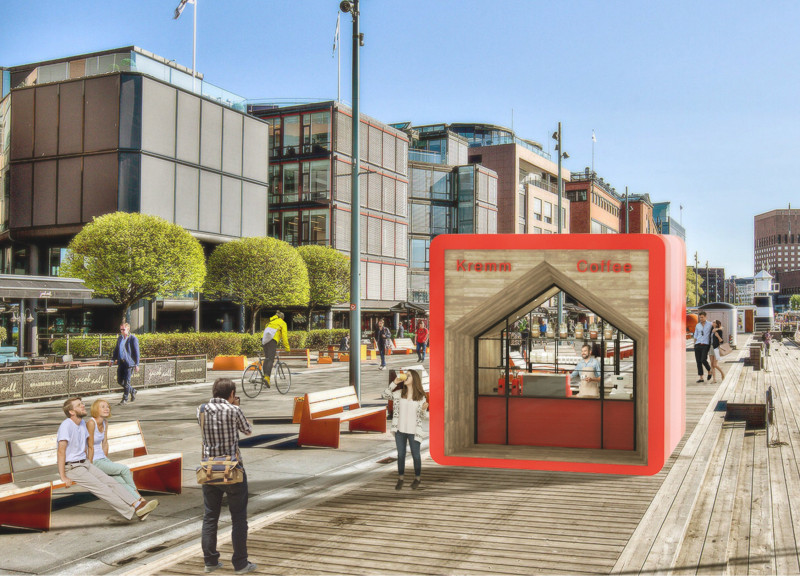5 key facts about this project
The coffee kiosk is a design that aims to serve a practical function within bustling urban settings, particularly in the specific climate and culture of Northern Europe. Functioning as a space for coffee preparation and customer interaction, the design connects modern requirements with touches of traditional architecture. Its compact shape creates an inviting environment that encourages engagement with the street and surroundings.
Architectural Response
The structure features a rigid box design that opens on two sides. This layout enhances the sense of connection between the interior space and the outside world. By avoiding a traditional roof, the design fosters a relationship between the kiosk’s shape and its functional areas. Natural light flows into the space, creating a bright atmosphere that draws in customers.
Modular Flexibility
A notable feature of the kiosk is its modular design, which provides flexibility for different customer needs. The structure can adjust its layout, accommodating more people with outdoor seating during warmer weather. Movable furniture within the kiosk allows for quick changes to the interior setup, responding to the daily ebb and flow of patrons.
Sustainability and Material Use
Sustainability plays a significant role in the design, reflected in both material choices and construction methods. The kiosk employs a timber frame structure, emphasizing the use of renewable resources. Moelven thermowood is used for various components, such as cabinetry and flooring, balancing visual appeal with environmental responsibility. This careful selection of materials supports the project’s ecological goals.
Functional Integration
The interior spaces have been designed to enhance efficiency for both staff and customers. Serving areas are placed to facilitate the barista’s workflow while remaining accessible to patrons. Essential facilities, like hand sinks and storage, are integrated into the design without disrupting the overall inviting feel of the kiosk.
The exterior is covered in colored metal, providing both durability and a distinct visual presence in its urban context. This material choice complements the overall design by reinforcing the balance between functionality and an engaging appearance, making the kiosk a practical addition to the city landscape.



























